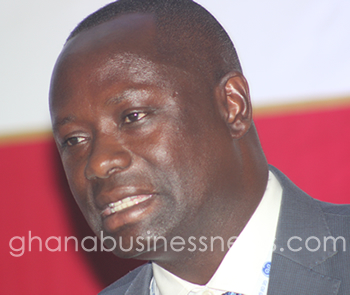By Emmakd
Copyright ghanabusinessnews

Mr Emmanuel Armah-Kofi Buah, the Acting Minister of Environment, Science and Technology has emphasised the importance of the newly passed Environmental Protection Act, 2025 (Act 1124), describing it as a critical tool to address emerging environmental challenges.
The Minister, in an address read on his behalf at the maiden lecture by the Environmental Protection Authority (EPA) in Accra, said the legislation marked a significant step in strengthening environmental governance and ensuring accountability.
“With the Environmental Protection Act, we are better positioned to confront emerging environmental risks, enforce compliance, and integrate science and technology into sustainable solutions,” Mr Armah-Kofi Buah said.
The lecture, on theme: ““Redefining Environmental Governance and Climate Action in Ghana” brought together policy makers, practitioners, and partners to reflect, strategise and take collective responsibility to safeguard Ghana’s environment.
Mr Armah-Kofi Buah said the environment underpinned all sectors of the economy, noting that healthy ecosystems, clean air, safe water, and fertile soils were essential for national development.
He cautioned against leaving environmental governance solely to the EPA or the Ministry, saying it was a “shared responsibility” that required collaboration from every sector and citizen.
“Environmental protection must not be viewed as the duty of government alone. It is the responsibility of businesses, communities, academia, and individuals to contribute to safeguarding the resources that sustain our lives,” he added.
Mr Armah-Kofi Buah reaffirmed government’s commitment to provide leadership, policy direction, and resources to ensure the successful implementation of the Act, but urged all stakeholders to take concrete actions in their communities.
Professor Michael Ayamga-Adongo, Deputy Chief Executive Officer in charge of Operations at the EPA, described the passage of the EP Act, 2025 as a bold statement of Ghana’s commitment to place sustainability and climate resilience at the heart of national development.
He said the new law was not just a legislative milestone but both a mandate and an opportunity to reshape environmental governance.
“At the Environmental Protection Authority, we see the EP Act 2025 as a mandate to ensure stricter environmental compliance, stronger stakeholder engagement, and more effective enforcement of environmental laws.
“But it is also an opportunity to redefine how governance structures, industries, and communities align in building a greener, cleaner, and climate-resilient Ghana,” he said.
Prof. Ayamga-Adongo cautioned that the urgency of the task could not be greater, citing climate-induced flooding, droughts, urban air pollution, and plastic waste as pressing challenges confronting the country.
“These challenges demand innovation, inclusivity, and decisive action,” he added and rallied stakeholders to support the EPA to effectively implement the new legislation.
The Environmental Protection Act, 2025 (Act 1124) is a landmark legislation passed to strengthen Ghana’s environmental governance framework.
It gives the Environmental Protection Authority enhanced powers to enforce compliance, protect ecosystems, and integrate climate action into national development.
Source: GNA



